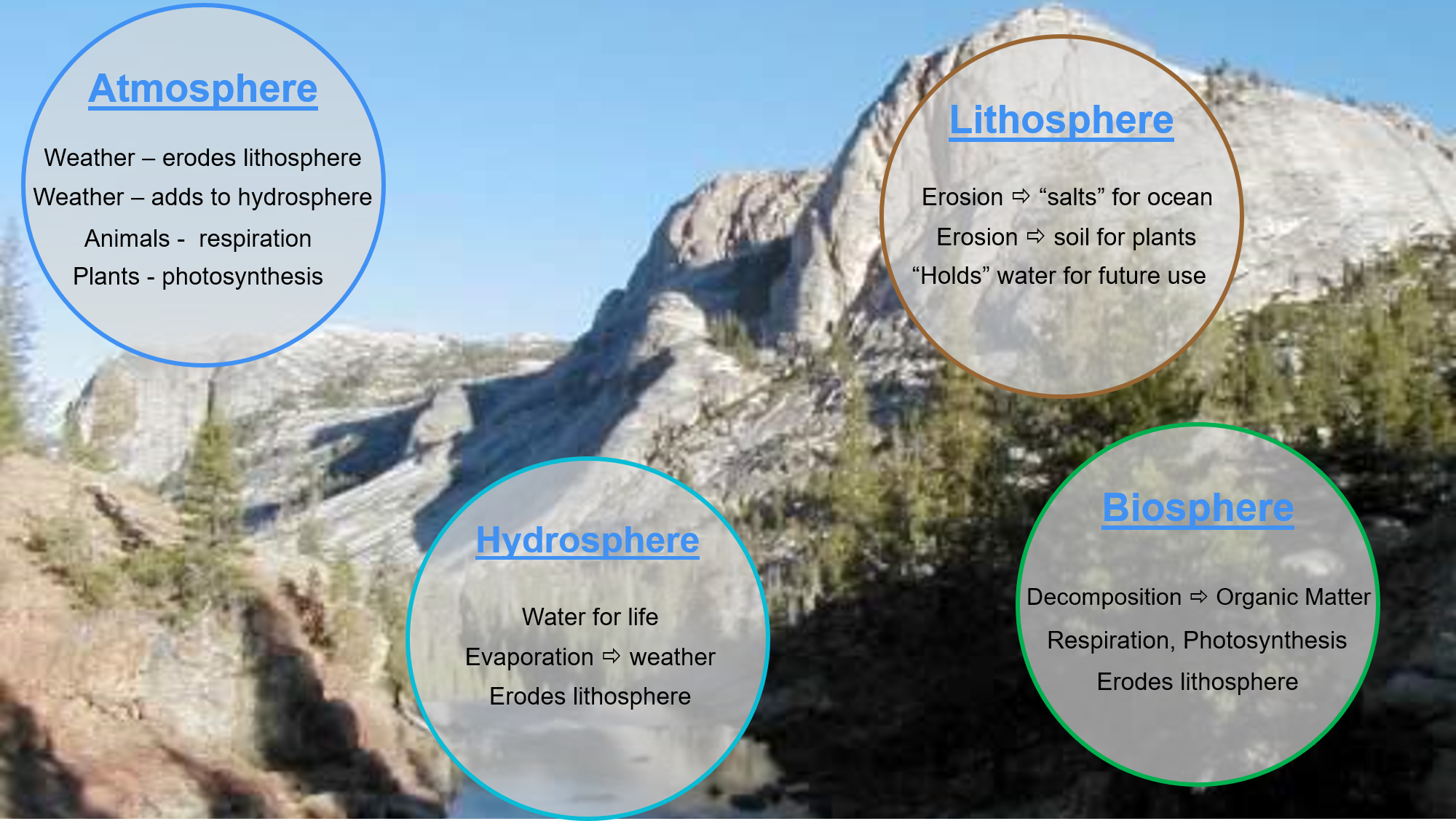
Origins |
There are two types of systems in mathematics: Open systems, where everything in the system is at the mercy of anything outside of the system, and closed systems, where everything in the system is not affected by anything outside of the system. We can think of the Earth, and each planet within our solar system, as a closed system. Anything that happens on Earth does not, for the most part, affect other objects in our solar system, and visa versa. Essentially, what happens on Earth stays on Earth. It is not a perfect closed system, however. The sun, meteoroids, and asteroids, among other items, can and do affect us on planet Earth.
The same is true for the processes that occur on our planet. Each process acts and interacts with others. When you change the conditions in one area, that will affect in some way (good or bad) the other areas.

Atmosphere |
Hydrosphere |
Lithosphere |
Biosphere |
|---|---|---|---|
|
Interacts with the hydrosphere and the sun to create weather. |
Interacts with the atmosphere and the sun to create weather. |
Plate tectonics creates and destroys land, which affects how the atmosphere, hydrosphere, and biosphere function. |
Evapotranspiration by plants adds water vapor and gasses to the atmosphere. |
|
Winds erode the lithosphere, creating the raw materials for:
|
Precipitation erodes the lithosphere, creating the raw materials for:
|
The atmosphere and hydrosphere can erode the lithosphere, breaking down and transporting fragments of it to create salts & soils. |
Soils created by the breakdown of the lithosphere by the atmosphere and the hydrosphere are used by plants and some animals. |
|
Contains the gasses that organisms need to survive:
|
Currently, all known organisms in the biosphere need water to survive. |
Some precipitation from the hydrosphere seeps into the ground to form reservoirs of freshwater called aquifers. |
Decomposition uses O2 and creates CO2 from the atmosphere. |
|
Circulates to moderate the planet's temperature, helping the biosphere to survive.
|
Circulates to moderate the planet's temperature, helping the biosphere to survive. |
Topography affects both atmospheric circulation and circulation of the hydrosphere, which in turn determines different ecosystems (deserts, etc.) |
Variations in climate due to the atmosphere, hydrosphere, and lithosphere leads to variation in ecosystems and species. |
copyright Sonjia Leyva 2022 |
|